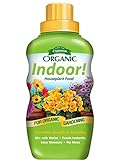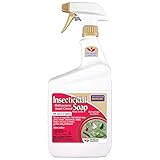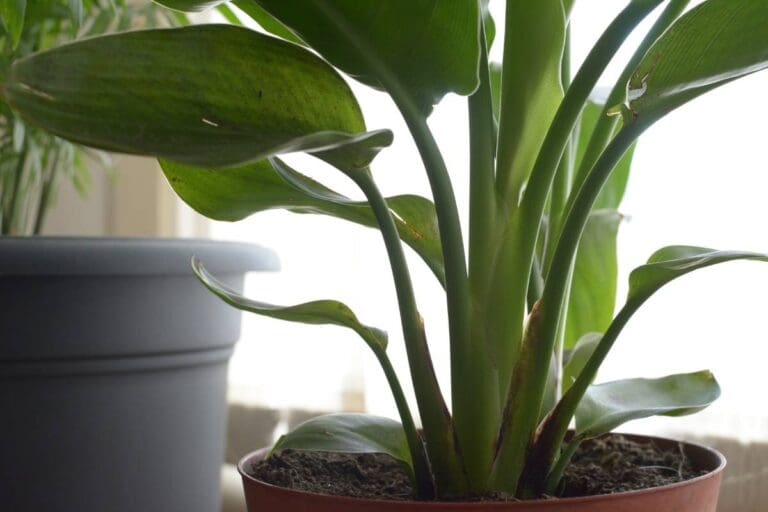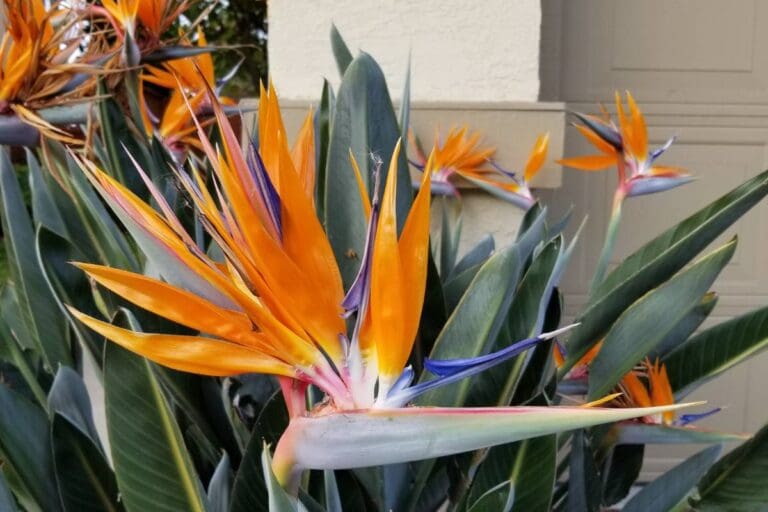Are Bird Of Paradise Plants Toxic To Pets?
Bird of paradise is a stunning low-maintenance plant, so it is the choice of many plant enthusiasts. If you are planning to bring one home, and if you have pets, you might want to know if birds of paradise are toxic to pets.
Bird of paradise is toxic to dogs, cats, rabbits, and other small pets. Its flower contains tannins, and the leaves contain hydrocyanic acid that is toxic to pets. Some common symptoms in pets after ingesting the bird of paradise are nausea, vomiting, drooling, and gastrointestinal problems.
This article will help you to know every detail about the toxicity of bird of paradise to pets and how you can take preventive measures to avoid any harm to your pets. Let’s begin.

Please note: Simplify Plants is reader-supported. Some links in the post are affiliate links and I get a commission from purchases made through links in the post.
Understanding the toxicity of birds of paradise
I don’t have pets at my house, but many friends do.
And they often ask me about various plants I own and whether they are toxic for pets.
And while doing my research for the bird of paradise plants, I found these out.
The severity of the toxicity and its effects on pets
To know the seriousness of the toxicity in bird of paradise, you will have to learn about the plant’s part, which is considered poisonous.
Generally, every part of the bird of paradise is toxic for pets.
Let’s discuss each part in detail:
Flowers and seeds
Flowers and seeds are the most poisonous part of the bird of paradise plant.
The flowers and seeds contain a tannin that is very toxic to animals.
Due to this, pets can suffer from gastric issues.
It has significant toxicity, so once your pet ingests this part, it will face various health issues you can’t expect.
But from my point of view, this is the type of situation which is quite rare.
I also have a bird of paradise in my house, and I have never seen my plant blooming so frequently.
So, the chances of facing such problems are very rare.
Leaves
Leaves have a toxic element called hydrocyanic acid.
This toxic element is released when a pet breaks the foliage by biting.
After the bite, the enzyme combines with the compound creating a toxin called hydrocyanic acid.
But don’t worry about it because it has mild toxicity until and unless consumed in a massive amount.
The symptoms of toxicity in pets

Your pet will show symptoms within 20-25 minutes as soon as it consumes the bird of paradise.
- Loss of appetite
- Vomiting
- Nausea
- Drooling
- Gastrointestinal problems
- Diarrhea
- Oral irritation
- Difficulty in swallowing or choking
- Swelling around the throat, lips, and mouth
- Weakness
- Lethargic body
- Uneasy feelings and frequent aggression
Common pets that are at risk from birds of paradise
Let’s look at some pets that can get poisoned by the bird of paradise.
Dogs, cats, and other common household pets
The most common pets at greater risk from birds of paradise poisoning are dogs, cats, rabbits, and other small animals like guinea pigs and hamsters.
After consuming this plant, they start to get serious health problems.
After they show signs of illness, you must immediately get help without wasting time.
The risk of toxicity in different types of pets
Let’s understand how the toxicity of the bird of paradise affects every pet.
Risk of toxicity on dogs
Dogs are common in every other household.
My friends have dogs, so I know how much you care about them and want to keep them healthy.
How toxic can the bird of paradise be for dogs?
As we discussed earlier, the main toxic component of the bird of paradise is Hydrocyanic acid.
The enzymes on the foliage mix with the cyanogenic compound, forming this toxic acid.
If the dog bites the bird of paradise, they get in contact with the most vicious toxin.
If dogs consume it in huge amounts, they can get serious health issues like digestion problems, low food intake, etc.
Similarly, while consuming flowers, tannin can be very toxic to them.
So, you must keep your dog out of reach of plants strictly.
Signs of bird of paradise consumption on dogs
Let’s discuss the common symptoms which you can see in your dogs if they ingest the bird of paradise plant:
- Vomiting
- Nausea
- Faster heart rate
- Diarrhea
- Oral irritation
- Shaking of muscles
- Lack of coordination
- Dehydration (To know your dog is dehydrated, you must check the tongue. If it’s extremely dry along with heavy breathing, then it’s dehydrated).
You should immediately reach your veterinarian if you notice any of the symptoms.
Treatment
- At first, when you see your dog ingesting the bird of paradise, you should immediately make your dog vomit. But avoid doing it when it’s been more than an hour.
- Also, if there is any plant part in its mouth, remove it. This helps eliminate the toxins before arriving in the dog’s bloodstream.
- If your dog’s heartbeat is very fast, provide cardiac medicine.
- Then contact the veterinarian and tell them everything about your dog’s consumption. Also, tell all the symptoms and weight of your dog.
- Then take your dog to the veterinary clinic with everything the dog has vomited and the plant’s parts that were ingested. This will help the veterinarian know the toxicity risk, and further treatment will get started.
Risk of toxicity on cats

Cats are the next most common pets after dogs.
Cats always have the curiosity to investigate new things in our households.
Bird of paradise is a type of plant where that cats will easily get attracted to it, mainly due to its huge size.
But unfortunately, for cats, the bird of paradise is extremely toxic.
Keeping the cats out of reach of this plant is always good.
How toxic can the bird of paradise be for cats?
The toxicity of this plant in cats completely depends on how much it has ingested and for how long the toxin has stayed in the body.
The leaves hardly cause any serious issues if consumed in small quantities.
But the main risk arises when your cat has ingested the flower.
The tannin present in flowers is highly toxic.
But you don’t need to worry about it as it’s not deadly, and your pet can recover easily after treatment.
Signs of bird of paradise consumption on cats
The symptoms of both dogs and cats are likely the same.
Now, let’s see:
- Nausea
- Drowsiness
- Diarrhea
- Vomiting more than 3-4 times
- Discomfort
- Lethargic body
- Dehydration
- Refusing to eat any food
- Gastric issues
Treatment
- If your cat is constantly shaking, cover it up with a blanket.
- The cats love to stay in the fresh air, so try to bring them to a place with proper ventilation.
- Then look for the plant’s part in the cat’s mouth and immediately remove them.
- If you have recently seen your cat consuming the bird of paradise, try to make them vomit to reduce toxicity risks. Don’t do it when it’s been too long since the cat has swallowed.
- Then contact the veterinarian for help, inform them about your cat’s condition, and take your cat to the clinic immediately.
- Also, don’t provide any food to the cat until and unless the veterinarian suggests it.
Risk of toxicity on small animals

The most common small animals are rabbits, guinea pigs, and hamsters.
We know how much you can get extremely worried about your small pets if they show any signs of illness.
Small pets are extremely sensitive to the bird of paradise.
If they ingest this plant by any chance, the pets will face various consequences, especially rabbits.
How poisonous can the bird of paradise be for small animals?
There are two types of birds of paradise, i.e., Strelitzia and Poinciana gilliesii.
Strelitzia plant is not that toxic for small animals.
The pets can be easily recovered from ingesting this.
But on the other hand, Poinciana gilliesii is considered extremely poisonous for small animals.
You can’t expect it, but they can even die after ingesting.
Try to give priority to your pet first and avoid getting such plants that are toxic to them.
Signs of bird of paradise consumption on small animals
Knowing early signs in your small animals is important to avoid serious problems.
Let’s discuss some signs which will help you to inspect what’s going on with your pet:
- Serious burn on the mouth, tongue, and lips.
- Having difficulty swallowing food.
- Collapsed paralysis
- Drooling
- Vomiting
- Diarrhea
- Extreme weakness
These are the common signs, so once you notice anything, take immediate action.
Treatment
Once you notice any weird behavior of your small pet, avoid wasting any time at your home and immediately take them to the veterinary clinic for treatment.
Then tell them everything about what your pet is suffering from.
Treating at home first will not help the small pets to recover from anything as the small pets immediately get affected by toxicity after ingesting.
The factors that influence the risk of toxicity
The factors that influence the risk of toxicity of bird of paradise on pets are:
Quantity

If your pet has consumed bird of paradise in huge quantities, the risk of toxicity will be much higher.
So, if your bird of paradise has many missing parts, then it might be because of excessive consumption of your pet, and you should immediately take a step for your pet’s recovery.
Time
If it’s been too long since your pet has consumed a bird of paradise, then the risk of toxicity will increase.
So, when you notice your pet is eating a bird of paradise, immediately stop them and start instant treatment to reduce the risk of serious health issues.
Plant part
The risk of toxicity also depends on which part of the plant your pet has consumed.
The risk is lower in the case of ingesting the foliage.
On the other hand, the risk is much higher in case of ingesting the flowers.
So, immediately check which part of the plant is missing and start treatment according to that.
Plant’s location
Keeping the bird of paradise indoors reduces the chances of risks caused by the flower as it blooms rarely.
While the plant growing outdoors has more blooms, the risk of toxicity also increases along with that.
So, take care of your pet accordingly.
Prevention and safety measures for pets and birds of paradise
Now that you know the effects and signs of bird of paradise toxicity on pets, let’s look at some preventive measures to help you avoid issues.
1. Keeping birds of paradise plants out of reach of pets

Let’s discuss how you can keep the different types of pets away from birds of paradise:
For keeping away dogs
- If the bird of paradise’s leaves is lying on the floor, immediately remove them before the dog eats them after smelling them.
- Don’t place your bird of paradise on some stand, as the dogs can easily knock it over.
- Always place the plant higher on the shelf or the balcony so the dogs cannot reach it.
- If you are going out, try to lock the room, windows, or balcony properly where your bird of paradise is.
- You can also keep the plant somewhere safe where the dogs are not allowed to visit.
- Spray mustard powder or pepper flakes around the plant, as the dogs hate the smell of spices.
- As dogs are the most obeyed pet, you can also train them not to go near the bird of paradise.
For keeping away cats
- Purchase cat-repellent sprays and sprinkle them around the plant. Whenever the cats try to reach the plant, they will sneeze.
- Relocate the place of the bird of paradise and keep it somewhere higher. For example, hanging baskets, shelves, balconies, etc.
- You can also spray cayenne pepper around the plant, as the cats don’t like the strong smell of it.
- You can place coffee grounds on the soil surface to keep the cats away.
- You can keep orange peels around the pot. Cats hate citrus fruits, so they will stay away.
- You can also bring some toys for cats to create a distraction.
For keeping away small pets
- Don’t allow your small pets to visit the rooms, windows, or balcony, and keep it locked.
- The best way to hang the plant is so small pets cannot reach it even if they jump.
- As the rabbits can jump much higher, try not to keep any box or chair around the plant as it can jump on them to reach. Trust me, because I have also experienced this in the past.
- Keep small toys around your small pets as they love to play with them, and it will not let them think about the plant.
2. Monitoring pet behavior around birds of paradise plants
If you notice some weird behavior in your pet, such as frequent aggression, thirstiness, lethargy body, and, also, they are not eating as much as they used to.
Then, something is wrong with them.
As you already know, our pets love playing, jumping, eating food, and being almost curious about everything.
If they are not doing any of it, check what’s wrong with them and treat them.
3. Seeking immediate veterinary care if a pet ingests a bird of paradise plant
You must contact veterinary care immediately when you notice your pet has ingested a bird of paradise.
Try to give them every detail about your pet, such as breed, sex, weight, and age.
Also, give them detail about which plant and part your pet has consumed.
The veterinarian will check all the vitals to find out how serious the condition is, and they start the treatment according to that.
Final words
Don’t be worried if your pet has ingested a bird of paradise. It doesn’t matter how serious the situation is; you can bring your pet to normal health by providing the correct treatment.
My friends have experienced this problem where their pets have ingested one of their houseplants. Instead of getting worried, I suggested they stay calm and contact the nearest veterinarian. Ensure you follow everything the vet suggests so your pets can recover quickly.
Even if you have a bird of paradise at home, place it in a spot or try the things I’ve mentioned in the article to keep your pets away from them. It is better to prevent than to cure, right?
Is the bird of paradise deadly to pets?
Fortunately, the death of dogs and cats have not been reported yet. But there are many cases where the rabbits have been declared dead, especially for the one specific genus of the bird of paradise named Poinciana gilliesii/Caesalpinia gilliesii.
Can you make a bird of paradise plant safe for your pets?
No, it is not possible to make this plant safe, but there are some preventive measures that I have already discussed in the article that you can follow so that your pet will not come near this plant.
Reference: Wikipedia.
Recommended Garden Supplies
| Product Image | Our Recommended Gardening Supplies | Check Offers! |
|---|---|---|
Top Top
Top
Top
Top
Top
Top
Top
Top | rePotme Houseplant and Tropical Classic Potting Soil Mix | Check Offer On Amazon |
 Top
Top
Top
Top
Top
Top
Top
Top | Espoma Organic Indoor Plant Food | Check Offer On Amazon |
 Top
Top
Top
Top
Top
Top
Top
Top | GooingTop LED Grow Light 6000K Full Spectrum Clip Plant Growing Lamp | Check Offer On Amazon |
 Top
Top
Top
Top
Top
Top
Top
Top | Soil Moisture Meter | Check Offer On Amazon |
 Top
Top
Top
Top
Top
Top
Top
Top | Govee Hygrometer Thermometer, Bluetooth Enabled! | Check Offer On Amazon |
 Top
Top | LEVOIT Humidifiers for Large Room(Best For Plants) | Check Offer On Amazon |
 Top
Top
Top
Top
Top
Top
Top
Top | Upgraded DIY Automatic Drip Irrigation Kit, 15 Potted Houseplants Support | Check Offer On Amazon |
 Top
Top
Top
Top
Top
Top
Top
Top | Stainless Steel Heavy Duty Gardening Tool Set | Check Offer On Amazon |
 Top
Top
Top
Top
Top
Top
Top
Top | Bonide Insecticidal Soap | Check Offer On Amazon |
 Top
Top
Top
Top
Top
Top
Top
Top | Bonide 32 oz Spray Neem Oil for Organic Gardening | Check Offer On Amazon |
 Top
Top
Top
Top
Top
Top
Top
Top | Garden Safe Fungicide | Check Offer On Amazon |





